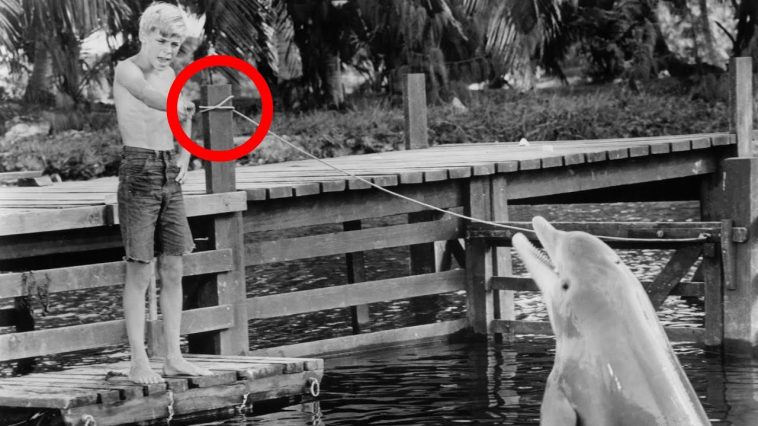“Flipper,” which debuted in the 1960s, was more than just a TV show—it was a cultural phenomenon that showcased the captivating adventures of a bottlenose dolphin alongside the Ricks family in the Florida Keys. At a time when television was rapidly expanding its influence, “Flipper” stood out with its theme of oceanic exploration and the profound bond between humans and marine life.
▬Contents of this video▬
00:00 – Intro
00:33 – The “Dolphin” Sound
01:37 – The Show’s Origins
03:36 – Animal Cruelty
05:34 – Was Ivan a Spy?
06:56 – The Star Stayed in the Water
07:51 – The Set Was Later Recycled
08:35 – Outro
Like this content? Subscribe here: https://www.youtube.com/factsverse?sub_confirmation=1
Or, watch more videos here: https://www.youtube.com/playlist?list=PLkXAntdjbcSJlJnpP4FgdU0swKbnkNgJj
Become a Facts Verse member and get access to all videos that contain mature content. Use the link below to get access to even more videos, ad-free.
https://www.youtube.com/channel/UCXZpQgX1897wYDLtvzmgyIA/join
This heartwarming series, with its signature theme song, became synonymous with family-friendly entertainment, inspiring a generation to appreciate the wonders of the marine environment. It painted a utopian image of coexistence, where humans and dolphins shared adventures, challenges, and mutual respect. However, beneath this charming veneer lay secrets and controversies that would later overshadow the show’s legacy. Behind the scenes, the treatment of the dolphins used in the show was far from ideal. Multiple dolphins played Flipper, and the conditions under which they were kept and trained were questionable.
The dolphins faced long working hours, confinement in small tanks, and were exposed to stressful situations. One of the most shocking revelations came from Ric O’Barry, the show’s primary dolphin trainer. He later became a vocal critic of dolphin captivity after witnessing firsthand the toll it took on these intelligent creatures. His transformation from a trainer to an activist revealed the darker truths about the industry and cast a shadow over the sunny image of “Flipper.”
Despite the charm and popularity of the series, its legacy is dual-edged: while it undeniably fostered a love for marine life among viewers, it also indirectly shone a light on the ethical implications of using animals for entertainment. As such, “Flipper” remains emblematic not just of a golden age of television, but also of the complex interplay between entertainment, ethics, and the unseen costs of show business. Join Facts Verse, as we present: Secrets & Scandals Behind the Scenes of Flipper!
Secrets & Scandals Behind the Scenes of Flipper (1964)



